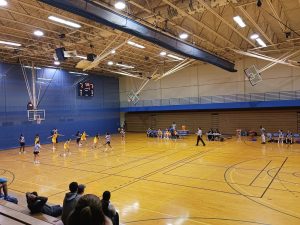New Tool to Fight COVID-19: Updated Boosters
September 21, 2022
The world is nearly three years into the worst pandemic since the Spanish flu of 1918, and COVID-19 does not seem to be going away anytime soon. People are still getting sick with the newly mutated variants, although not as many are dying or becoming seriously ill and requiring hospitalizations due to the vaccines. Since January 2021, 511 students and 266 employees have contracted COVID-19 at NEIU, as reported by Student Health Services (SHS).
According to “Global Impact of the First Year of COVID-19 Vaccination: A Mathematical Modeling Study,” in The Lancet Infectious Diseases form June 23, 2022, the vaccines have saved 19.8 million lives with an overall reduction of deaths by 63 percent globally.
There is a misconception that the vaccines do not work if a person tests positive, explains David Worrell, APRN, a Nurse Practitioner at NEIU SHS. “These vaccines are not 100% effective at stopping a COVID infection,” according to Worrell. “The main point of the vaccine is to prevent serious illness, not an infection. No vaccine is perfect, unfortunately. After four to five months, the vaccine’s protection wanes over time. What it does do quite well is it prevents serious illness and a person from ending up in the hospital.”
People can become infected multiple times with COVID-19 since the virus mutates constantly and it can evade immunity from either prior infection or vaccination. According to Worrell, research illustrates it is better to acquire immunity through vaccination than to contract the virus naturally. The updated booster shots target the new Omicron variant specifically, unlike the prior vaccine which was for the original Wuhan strain of the virus.
The CDC and the City of Chicago’s trove of recent COVID-19 data illustrate the vaccine’s effectiveness. Since Omicron subvariant BA.2 became the dominant COVID-19 variant in early 2022, unvaccinated people had a 2.5 times higher risk of dying from COVID-19 than fully vaccinated people. Unvaccinated people had a 5.9 times higher risk of dying from COVID-19 than those who received a booster. (https://www.chicago.gov/city/en/sites/covid-19/home/vaccine-effectiveness.html)
Death or serious illness from COVID-19 is not the only concern. The vaccines prevent people from developing what is known as Long COVID, where the symptoms of the virus either damage the body systems or the virus does not adequately vacate the body for reasons currently being studied. One in five persons diagnosed with COVID-19 will develop Long COVID, according to the CDC.
Here is Samatha’s story from Northwestern Memorial HealthCare. Samantha, a healthy, 34-year-old woman who worked at an assisted living facility, tested positive for COVID-19 in October 2020. By November, she noticed her body had not fully recovered. Then her daughter found her unconscious on the floor one morning. Samantha had no clue how she ended up on the floor or for how long. She continued exhibiting severe vomiting, incontinence, fatigue and trouble breathing. Then she began to lose her hair and developed psoriatic arthritis. Her cognitive abilities went downhill and she needed constant reminders to remember things around her home. Upon advice from her doctor, she went to the emergency room and had subsequent neurological, cardiac, and pulmonary tests. The team of doctors at Northwestern Medicine diagnosed her with Long COVID-19 Syndrome, a debilitating and often chronic condition. (https://www.nm.org/healthbeat/patient-stories/long-covid-19-symptoms-stories)
The university, unfortunately, does not have current plans to conduct a vaccine drive on campus because the federal and state governments control the distribution of vaccines. People that want the new boosters should contact their healthcare provider or pharmacies such as Walgreens and CVS, many are offering appointments on their apps or one may find a vaccine location at this link: https://www.vaccines.gov/search/.







